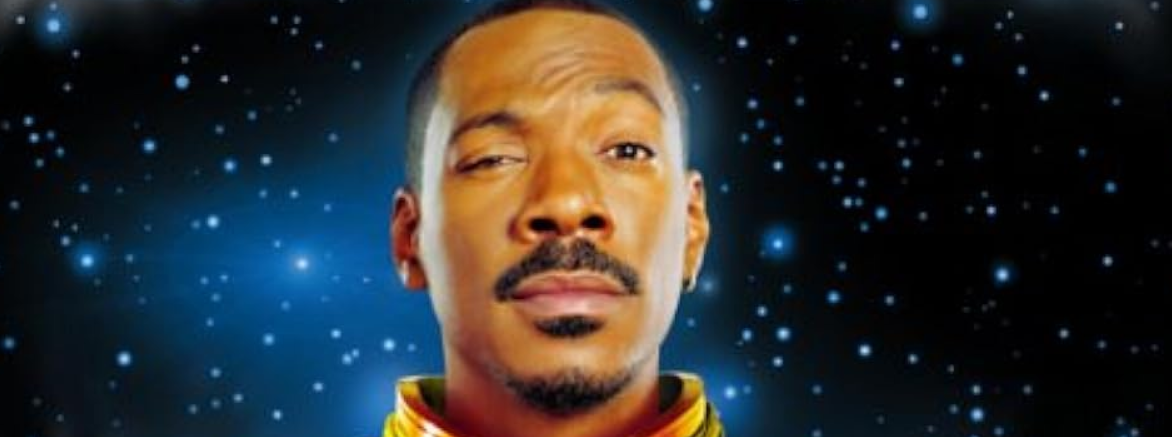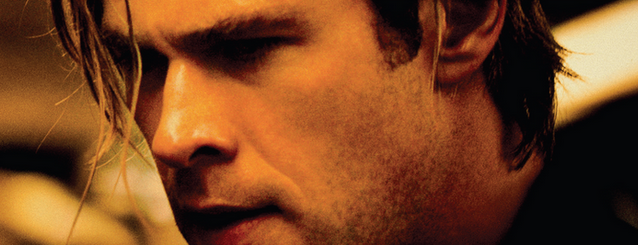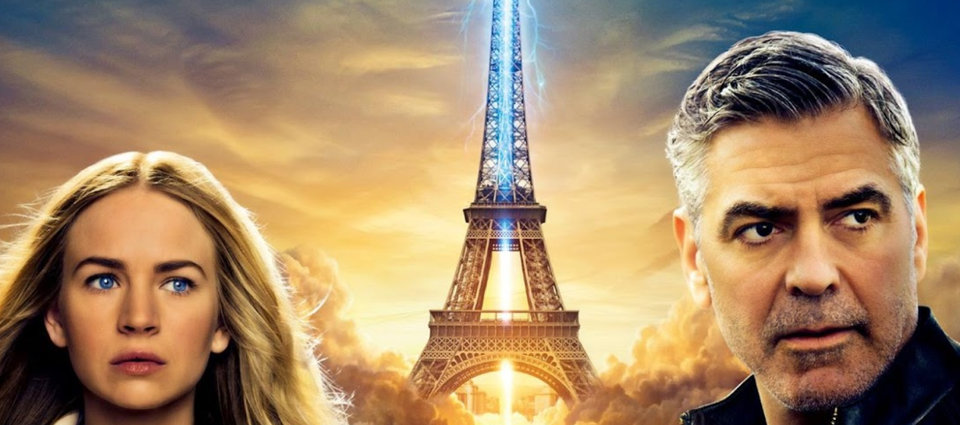Pan
Alright, which one of you lot ordered the Peter Pan origin story? Well, you'd better clean it up, it's starting to stink the place out.

Peter Pan, it seems, is an essential part of anglophone culture these days.
Scores of books have been written which either reimagine or retell or liberally rip off the character. And even though the Peter Pan story was originally told as a play, there have been many new interpretations of the original created over the years, not to mention the musicals and the ballets and the TV series and the video games.
Even when writers are not directly retelling the story, it finds its way into stories as quotes – especially “second star on the right, and straight on ‘til morning” – or in songs. Peter Pan persists and inspires. Its themes and characters are evergreen and are referenced with only the best of intentions.
The road to hell is paved with good intentions, though. When J. M. Barrie wrote Peter Pan in 1904, a play dedicated to the orphaned children of his friend Sylvia Llewellyn Davies, I suspect he had no idea that in 2015 a group of extremely well-intentioned and capable film-makers would shit out the colossal dud that is Pan.
How and why Barrie created Peter Pan is a charming and heart-breaking story. He is named after his friend’s son, Peter, but was truly inspired by Barrie’s teenage brother, David, who died when Barrie was just a boy. Barrie and Peter Llewellyn Davies shared the pain of losing a loved one as children. By basing Peter Pan on David Barrie, in creating a boy who would forever remain a boy, J. M. Barrie discovered unity in grief and transformed that grief into art intended to inspire and comfort others. The play was immediately successful and became a novel in 1911.
Disney adapted Peter Pan into their beloved 1953 animated classic, purchasing the film rights from Great Ormond Street Hospital, rights which Barrie had granted the hospital in perpetuity. Steven Spielberg, who found a personal connection to the story of troubled father-son relationships, directed the authorised sequel Hook, released in 1991. In 2003, P. J. Hogan directed another authorised adaptation, and Damon Dietz released a reimagining of the story that same year.
Jason Fuchs is another of the many writers who found Peter Pan to be fundamental in bringing them into writing. According to this source (https://writingstudio.co.za/taking-pan-from-page-to-screen/), Fuchs fell in love with the Peter Pan story as a boy on a Pan-themed ride and became so fascinated by it he resolved to “make a movie that told the full story”. After graduating from film school, he worked his idea up into a script named Pan. This script was sufficiently impressive to find a place on 2013’s Black List of best unproduced screenplay and was itself purchased that year.
Joe Wright was attached as director. After much success and acclaim for his work on films like Pride and Prejudice and Atonement, Wright certainly seemed like a safe pair of hands to helm the project. Like Spielberg, Peter Pan had a magnetic draw for him thanks to its themes, but for Wright, the message of overcoming fear was one he wished to teach his young son. The writer was bringing his dream project to a director who resonated with it, backed by a producer who believed, and I quote, “Every generation deserves its own Peter Pan story; it was exciting to me to re-examine what we think we know about Peter and Hook and Tiger Lily, and to twist and turn those notions around.”
Oh. Oh dear. Oh no. Oh God, no. Oh God, no, why?
Pan is a revisionist Peter Pan origin story. Budget $150 million, global box office…$129 million.
A baby is left at an orphanage by his mother, his only possession a pan flute pendant. Twelve years later, during World War II, orphanage shenanigans are afoot. Peter (Levi Miller) and his friend believe the nuns who run the orphanage are hoarding all the food and go looking for it. In the process, they find a letter to Peter from his mother but are caught by the nuns.
The head of the orphanage calls for pirates (uh what?) who kidnap a huge number of the orphans (uh, what?) at night. Peter goes with them onto their flying ship, which ends up in a dogfight with Spitfires (um, ok), before it reaches Neverland. The orphans are greeted by Blackbeard (Hugh Jackman) who first of all has everyone perform an a capella version of Smells Like Teen Spirit (no, really, it’s actually cool) and puts the orphans to work in a mine (excuse me?), digging for Pixum. Pixum, or crystallized fairy dust, is used by Blackbeard to preserve his youth.
Peter meets an adult miner, James Hook (Garret Hedlund) and his associate Smee. Peter finds a chunk of Pixum but ends up insulting the pirates. Blackbeard punishes Peter by making him walk the plank and plummet to his death, but he survives by discovering a hitherto unknown talent for flying. Blackbeard is concerned: there is a prophecy, held by the local native tribe, that a flying boy would lead an uprising and kill him. Blackbeard jails Peter until Hook breaks them both out and they escape, along with Smee, in a flying ship.
They escape into the forest, have some mild adventures with some weird birds, and are captured by Tiger Lily (Rooney Mara) and brought into the tribe’s village. Hook has to fight one of the tribe for his life, Peter intervenes and the tribe notice his pendant, which they believe belongs to the great hero Pan.
Tiger Lily gives Peter a brief history lesson. Blackbeard had the horn for Peter’s mother, Mary, but she instead had a very brief but fruitful relationship with the Fairy Prince. Blackbeard found out, went bonkers, Mary hid Peter in London. Meanwhile, Smee decides to betray Hook and Peter by telling Blackbeard where they are and the Pirates attack the tribal village. Hook tells Peter he killed Peter’s mother and now Peter is mad at Tiger Lily after they escape.
So off Peter, Hook and Tiger Lily go, off to meet the Fairies and get their help. A crocodile shows up and conspicuously fails to eat Hook’s hand before some mermaids scare it off. Hook finds an abandoned ship and does a Han Solo and leaves, before Peter and Tiger Lily open the path to the Fairy Kingdom. Except in a fit of shabby plotting, Blackbeard and his crew and their ship are waiting for them and Peter and Tiger Lily end up captured. Blackbeard and his pirates attack the Fairy Kingdom and use flamethrowers in an attempt to kill the fairies (uh, what?).
Then Hook Han Solo’s his way back into the story but Peter has to use his flight to rescue Hook while Tiger Lily battles Blackbeard. Peter harnesses the power of the fairies to hurl all of the pirates – all of them – to their deaths (uh, WHAT?), including Blackbeard and the day is saved.
The three of them return to London, rescue all the boys from the orphanage – who become the Lost Boys – before the story ends, all set up for a sequel explaining how Hook loses his hand and starts hating Peter, a sequel we will blessedly never have to experience.
I like to begin with the positives and here we go: the special effects are lovely. There’s a lot of them and they look fantastic.
Oh, some of the performances are good, too. Hugh Jackman has a huge amount of fun overacting, in the positive sense, as Blackbeard. As villains go, he’s pitched just right as a character in this kind of movie. Over-the-top, bombastic, motivated, capable, dismayed by the fools who surround him. His motivations are reasonable, if evil, and this character and Jackman’s portrayal of him deserved a better movie to inhabit.
Levi Miller doesn’t do too badly either. His performance is marked by an incredible level of commitment to the emotional needs of the role, as is often the case with child actors. While he hits the correct notes, he does so with an excess of intensity. He is eye-wateringly sincere.
That’s where the good things end, sadly, because nobody actually needed a Peter Pan origin story, especially one from a director who couldn’t settle on a consistent tone, based on a screenplay which makes very little narrative sense.
Tonally, this film is all over the place. Is it a broad comedy of funny accents and child-like hijinks? It is until the pirates turn up. Is it a bizarre Baz Luhrmann-esque escape into off-beat musical numbers and pantomime? It is for about three minutes. Is it a grim tale of child exploitation and slavery? It is until Peter and Hook escape. Is it a wholesome adventure for the whole family? It is until Peter and Hook escape again. Then we're back to the grim and brutal.
These tonal decisions genuinely baffle me and every single one of them is Joe Wright’s responsibility. He had control over how the budget was spent and how sequences were written, staged and shot. Ultimately, it’s Wright who thought a kid’s movie should have the comical bad guys attempt to immolate the fairies. He’s the one who chose to have an entire pirate crew be dropped from a great height onto huge crystals under Peter’s promptings. He’s the one who took the movie to show his son fear could be overcome. Joe Wright is without question a very capable director but at some point during the production of Pan, things went wrong.
But I think this film was doomed to failure from the get-go. The idea of a Peter Pan origin story is an intriguing one for Pan fans - of which I admittedly am not one - as Peter Pan is a complex character as originally written. Emmet Asher-Perrin, in this article (https://reactormag.com/5-mistakes-that-hollywood-blockbusters-should-stop-making-as-proved-by-pan/) persuasively argues that the screenplay fundamentally misunderstands and misrepresents Barrie’s vision by stripping Peter of any complexity the character originally had. Fuch’s Peter is brave and noble and dull as ditchwater and the bloody Chosen One, come to free Neverland from the evil Blackbeard.
And even though we’re going down the standard origin story rabbit hole, we don’t get to see how and why Hook becomes the famous Captain Hook. We don’t get to see how the crocodile gets its clock and sets its sights on devouring Hook and his crew. All we get is Wright’s one big idea – You Too Can Be Brave, Conquer Your Fears And Become A Hero, as if we didn’t already have enough of that.
What we end up with is a flashy, hollow, noisy, empty-headed spectacle which does a grave disservice to what inspired it by cheapening it, reducing it to mere beats on a cheat sheet, rather than a story growing out of love for storytelling and characters and a sense of wonder. Pan, for all of its budget and ambition, is as dull and noisy as it is inessential.



